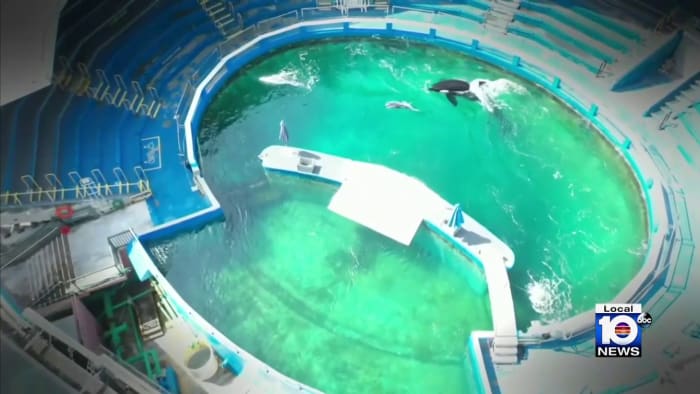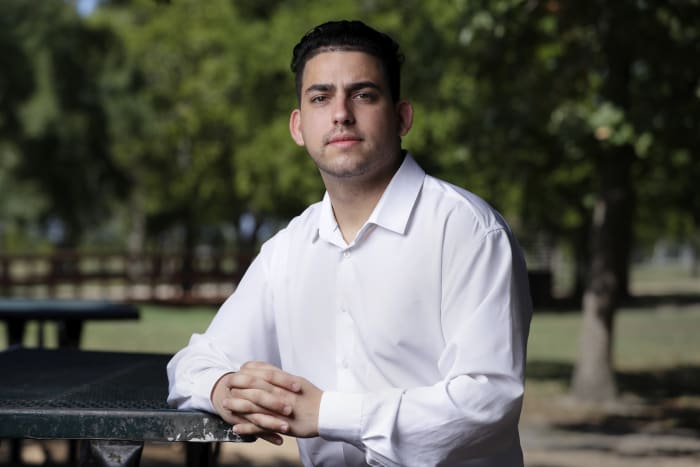
www.local10.com
Health of Miami Seaquarium’s Lolita has improved, independent assessment finds
The much-awaited independent assessment of Lolita's health says the beloved 56-year-old orca is doing much better.
Local
KEY BISCAYNE, Fla. – A new report has been released on the health of Lolita, the orca who lives at Miami Seaquarium and has been at the center of controversy.
The much-awaited independent assessment of her health by marine experts states that the beloved 57-year-old orca is doing much better.
The news was welcomed by people like Animal Welfare Institute Marine Mammal Scientist Naomi Rose.
“We needed some independence and transparency in her health evaluation, and that has happened,” she said. “They seem to think she is improving on a fairly regular basis and so that is reassuring.”
Friends of Lolita board member and Sacred Lands Conservancy Vice President Raynell Zuni-Morris says she is grateful the Seaquarium’s new owners The Dolphin Company allowed independent marine experts to examine Lolita and review her medical history.
“We have been asking for this independent vet report for years and we are raising our hands to all supports and advocates who have been echoing that,” said Zuni-Morris.
She said she would like to see them expand Lolita’s enrichment program to include sounds from her native waters off the coast of Washington State.
“They are familiar to her and her family,” said Zuni-Morris.
Miami Seaquarium’s new general manager, Patrick Pearson, said they have activated the stadium’s sound system to play native sounds.
“The vets did come in and make some specific recommendations that we implemented immediately, including that,” he said. “Other sounds of whales, birds, and just ocean sounds.”
Earlier this year, the new owners of the Seaquarium said Lolita will no longer be performing staged shows.
Animal advocates said they are pleased the company allowed independent marine experts to examine her and review her medical history, but they still worry about the size of her current tank and wonder if once she si up to full health, will management be open to letting her go.
“Whether it is to a sanctuary, whether it is to freedom, whether it is to another facility, are they willing to let her go,” asked Rose.
The experts reported that Lolita appears to be receiving high-quality care and recovering well after previously suffering an acute illness.
The next steps include continuing to monitor her health and providing on-site health assessments on a regular basis, according to the report.
“They have been invited to come back as often as they like,” said Pearson. “We think that is going to happen monthly.
“We are going to listen to the experts going forward, and if they make any recommendations, we will do our best to try and accommodate.”
In a written statement, Jared Goodman, PETA general counsel for animal law said:
“Given the Seaquarium’s record of animal suffering, premature deaths, and disregarding its own veterinarians’ instructions, PETA remains concerned for Lolita’s health and wellbeing, but independent veterinary evaluations and Lolita’s ongoing recovery from her recent illness could be positive signs that she’s one step closer to being moved to a seaside sanctuary, where she could finally feel the ebb and flow of the tides after more than half a century in a cramped concrete tank.”
Zuni-Morris’ group Sacred Sea has advocated for Lolita’s release to a netted enclosure in her native waters off the coast of Washington State.
On Thursday in a news release, the group stated that while the report is a first good step, “She can never fully be herself in a concrete tank, she needs to be home so that she can be whole.”
Rose said the next immediate step is bringing Lolita to full health, and that any potential options in Lolita’s future will involve federal regulators.
“There are several laws in play here, the endangered species act, the marine mammal protection act, the animal welfare act, so whether we like it or not the federal government is involved as is the Miami-Dade County so I think it is premature to say what is going to happen to [Toki] she is for now going to, for now, stay where she is being treated and to be brought back to full health, so she is not yet at full health, when she is there, then we can start talking about what her options are and again that conversation can’t be held without considering the federal laws.”
























































